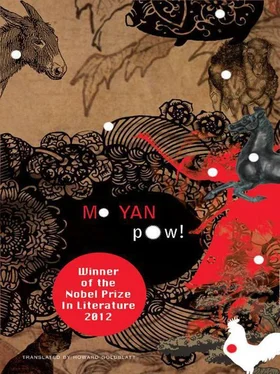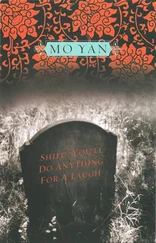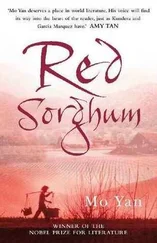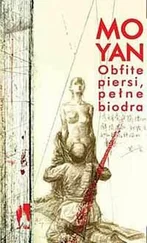A gourmet spread of a dozen delectable dishes has been laid out on a table three feet in diameter in a private room at the Huaiyang Chun restaurant on the third floor of a luxury hotel. Directly opposite the door, on the red velvet wall, hangs a ‘good fortune’ tapestry with a dragon and phoenix. Twelve chairs are arranged round the table, only one of which is occupied—by Lan Laoda. His chin rests in his hands and he has a melancholic air. Threads of steam waft from some of the delicacies on the table in front of him but the rest have grown cold. A waiter in white, led into the room by a young woman in a red suit, is carrying a gold-plated tray on which rests a small plate of food dripping with golden-yellow gorgon oil and emitting a strange aroma. The woman takes the plate from the tray and places it in front of Lan Laoda. ‘Mr Lan,’ she whispers, ‘this is the nasal septum from one of Heilongjiang's rare Kaluga sturgeons, known popularly as a dragon bone. In feudal times, the dish was reserved for the enjoyment of the emperor. Its preparation is very complicated. Steeped for three days in white vinegar, it is then stewed for a day and a night in a pheasant broth. The owner personally prepared this for you. Enjoy it while it's hot.’ ‘Divide it into two portions,’ Lan Laoda says indifferently, ‘and wrap them to go. Then send them to the Feiyun Villa on Phoenix Mountain—one for Napoleon and one for Vivian Leigh.’ The woman's long, thin brows arch in astonishment but she dares not say a word. Lan Laoda stands up: ‘And send a bowl of plain noodles to my room .’
Lao Lan put me in charge of the meat-cleansing workshop after consulting the calendar to select my first day on the job.
My initial managerial recommendation was to combine the dog and sheep kill rooms to free up one for a meat-cleansing station. All the animals would have to pass through the station on their way to the kill rooms. Lao Lan considered my suggestion for only a minute before agreeing, his eyes sparkling golden with excitement.
‘I like it!’ I said and on a sheet of paper, using a red-and-blue pencil, I quickly sketched out my plan. Finding nothing to criticize or change, Lao Lan gave it an appreciative look. ‘Do it!’ he announced.
Father, on the other hand, had a number of objections. Although he claimed it to be a terrible idea, I did note a look of admiration in his eyes. There's an old saying that goes: ‘No one knows a boy like his father.’ But you could also say, ‘No one knows a man like his son.’ I could read my father like a book. When he saw me announce to the one-time independent butchers, now employees of the plant, the new procedures, his misgivings were also tinged with pride. A man can be jealous of anyone but his own son. His unease stemmed not from any sense that I'd upstaged him but that I had the mind of an adult in a child's body. The villagers believed that precocious youngsters were fated to die before their time. My quick wits and my intelligence filled him with pride and his father's hope for his son soared high. But, according to local superstition, those same qualities enhanced my chances of dying young. Hence his emotional predicament.
As I think back, it seems almost miraculous that, as a twelve-year-old boy, I was able to devise a method for injecting water into living animals, to redesign a workshop, to be in charge of a few dozen workers and to successfuly increase the plant's production. When I recall those times I can't help thinking that I was quite a remarkable fellow back then!
Wise Monk, now I'm going to tell you exactly how remarkable I was. I'll describe for you the layout of the meat-cleansing station and what I did, and you'll see that I'm not exaggerating.
Security at the plant was tight in order to protect it from the prying eyes of competitors and sneaky reporters. We maintained our secrecy with the claim that we were trying to prevent outsiders from contaminating our products. Though my innovation turned the water-injection process into ‘meat-cleansing’, if the reporters—who thrive on misrepresentation—got wind of it, there's no telling what they'd feed their readers. (My handling of the reporters, which I'll describe later, is one of the highlights of my recollections.)
On my first day on the job, Lao Lan announced that I was in charge. That done, I addressed the workers: ‘If you think I'm just a child, you are sadly mistaken. I may be a head shorter and several years younger, but I know more than any of you. I'll be watching you and taking note of your performance. I'll report everything to Lao Lan. I may not scare you but Lao Lan's a different story.’
‘You needn't be scared of me either,’ Lan Lan spoke to them next. ‘You are working for yourselves, not for me, not for Luo Tong and not for Luo Xiaotong. We have given him heavy responsibilities because he has room in his head for new and original ideas that can bring vitality to our plant. Now that may not mean much to you but you know the meaning of money, and that is what vitality equals—money. When the plant makes a profit, the money winds up in your pockets and that equals good food and fine liquor, new houses, improved prospects for your sons’ brides and richer dowries for your daughters. In a word, it's what will make you stand straight and tall. You all know that operating as an independent butcher has been outlawed. I wouldn't have created this plant otherwise. If you decide to do some private butchering on the side and get caught, at the very least your family will suffer from a heavy fine. At the very worst, you'll serve jail time. This plant was created for all of us, since the one thing our village knows is how to slaughter livestock. You are all pros at butchering and amateurs at everything else. Even if some of you decide to breed livestock or work with processed meat, at the end of the day you're still involved with slaughter. There can be only one conclusion—if the plant does well, we all do well, and if it doesn't then we all go hungry. How do we see that it does well? By working as a team. The flames rise higher when everyone feeds the fire. United, we can move mountains. The Eight Immortals crossed the sea by calling on everyone's talents. Hard work will be rewarded. In the eyes of most, Xiaotong is just a boy. But in my eyes he's a talented resource, one we must make use of. I'm not talking iron rice bowl here. He'll stay on as long as he performs well. If he doesn't, he'll be out. Director Xiaotong, give the order.’
I'm no longer young, and public speaking makes me nervous. But back then I was almost fanatical in my desire to put on a show—the bigger my audience the better. Well, I put those plant employees through their paces like a fearless cowherd tending a field full of dumb animals. My first task for them was to build a structure in the workshop. In accordance with my design, they were to erect two tall towers—metal posts held together with steel struts, one on each side of the workshop and fitted on top with a galvanized steel water vat. Iron pipes leading from the vats’ bases stretched along the width of the workshop with a water tap connected to a rubber hose every six feet. That, in all its simplicity, was the meat-cleansing station. Complicated designs are ineffective, effective designs are uncomplicated. Some of the men made faces as they worked, some sniggered. ‘What the hell are we doing?’ one of them muttered under his breath, ‘Making cricket cages?’
‘Right,’ I said loudly, without caring whose feelings I hurt. ‘I plan to put cows into cricket cages!’
I knew that these workers—not long ago the village's most unruly residents and most of them illegal butchers—had no interest in carrying out my orders. Putting me in charge of a workshop was, in their view, a stupid mistake by Lao Lan and one further compounded by my drawings and my instructions. I'd have wasted my time trying to explain things to them, so I thought I'd let the results speak for themselves. ‘Just do as I say,’ I ordered. ‘And think whatever you want.’
Читать дальше












